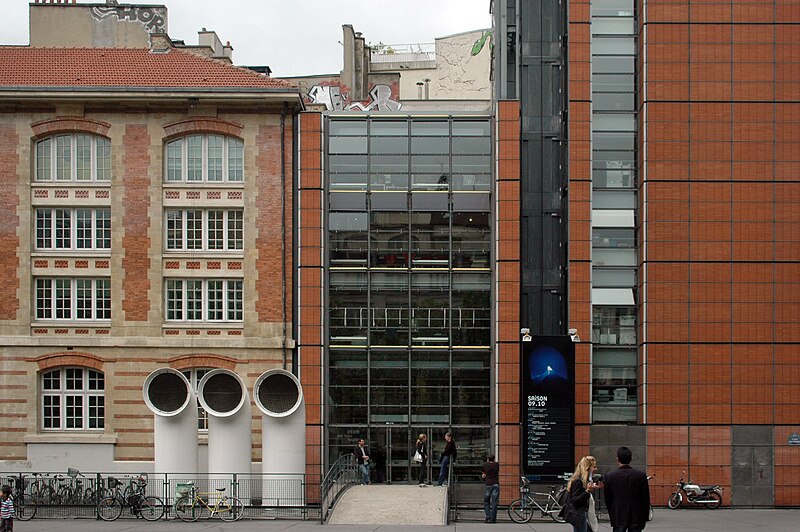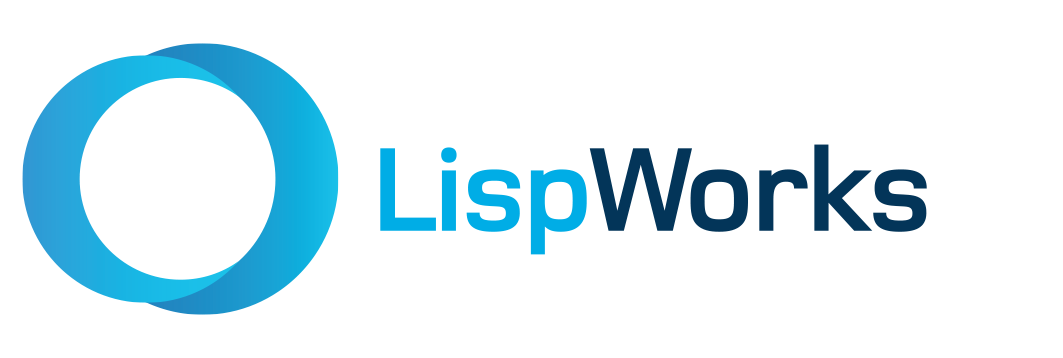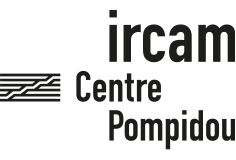Highlights
Lisp for Music Technology
-
 Dimitri Bouche Dimitri Bouche (SPEAKER)
Dimitri Bouche Dimitri Bouche (SPEAKER) -
 Jean Bresson Jean Bresson (SPEAKER)
Jean Bresson Jean Bresson (SPEAKER) -
 Christophe Rhodes Christophe Rhodes Goldsmiths University of London (COMMITTEE SPEAKER) United Kingdom
Christophe Rhodes Christophe Rhodes Goldsmiths University of London (COMMITTEE SPEAKER) United Kingdom -
 Max Rottenkolber Max Rottenkolber (SPEAKER)
Max Rottenkolber Max Rottenkolber (SPEAKER) -
 Jérôme Nika Jérôme Nika (SPEAKER)
Jérôme Nika Jérôme Nika (SPEAKER) -
 Robert Piéchaud Robert Piéchaud (SPEAKER)
Robert Piéchaud Robert Piéchaud (SPEAKER)
Numerous Lisp-based musical systems have been developed and used in the past. However, Lisp usage has been progressively discontinued with the development of new branches in mainstream computer music such as digital signal processing, real-time systems or distributed multimedia computing. The power and expressivity of Lisp make it a valuable language to musicians for exploring high-level compositional processes, and this language remains a fundamental support for computer-aided composition research and creation at Ircam. In this session we propose to present an overview of current computer-aided music composition projects, and discuss with ELS attendees the challenges, issues and perspectives for using Lisp in aforementioned music technologies.
-
Making Creativity: Software as Creative Partner
-
 Richard Gabriel Richard P. Gabriel (SPEAKER)
Richard Gabriel Richard P. Gabriel (SPEAKER)
Programming, software development, and software engineering: We are taught to solve puzzles and do what we’re told. We carry these lessons into our jobs and careers without deliberation. Old fashioned software engineering aims to make no mistakes; agile aims to render programmers compliant, and commands them make money for their bosses. For the past year I’ve been exploring what creativity means during the act of writing, and I’ve been doing it by constructing a software partner that acts as a scientific engine of discovery — a partner that displays a flair for the strange that even the most daring poets can rarely match. I don’t have requirements, I don’t have specifications, and I normally don’t have a plan much beyond a guess. If my program doesn’t surprise me, I cry “failure!” and lament. I’ll explore what programming is, how software can act as a collaborator, show you how the agile practices are like training wheels, and explain how a program can astound. All in Lisp, of course.
-
Parallel Programming with Lisp for Performance
-
 Pascal Costanza Pascal Costanza (SPEAKER)
Pascal Costanza Pascal Costanza (SPEAKER)
This presentation gives an overview of parallel programming constructs and primitives, and how they can be used efficiently from within Common Lisp. The focus of this talk is on taking advantage of multi-core processors for improving the performance of algorithms. For this reason, the most important techniques for achieving efficiency in general will also be covered. The presentation will be based on examples from high performance and life sciences computing.
-
Sending Beams into the Parallel Cube
-
 Gábor Melis Gábor Melis (SPEAKER)
Gábor Melis Gábor Melis (SPEAKER)
We send probes into the topic hypercube bounded by machine learning, parallelism, software and contests, demonstrate existing and sketch future Lisp infrastructure, pin the future and foreign arrays down. We take a seemingly random walk along the different paths, watch the scenery of pairwise interactions unfold and piece a puzzle together. In the purely speculative thread, we compare models of parallel computation, keeping an eye on their applicability and lisp support. In the the Python and R envy thread, we detail why lisp could be a better vehicle for scientific programming and how high performance computing is eroding lisp's largely unrealized competitive advantages. Switching to constructive mode, a basic data structure is proposed as a first step. In the machine learning thread, lisp's unparalleled interactive capabilities meet contests, neural networks cross threads and all get in the way of the presentation.
-
Location
 IRCAM http://www.ircam.fr (CONFERENCE) place Igor-Stravinsky 1 75004 Paris France
IRCAM http://www.ircam.fr (CONFERENCE) place Igor-Stravinsky 1 75004 Paris France Hotels
- Hôtel du Cygne http://www.hotelducygne.fr/ (HOTEL)
- Hôtel École Centrale http://paris-marais-hotel.fr/ (HOTEL)
- Hôtel Beaubourg http://www.beaubourg-paris-hotel.com/ (HOTEL)
Organization
Programme Chair
-
 Kent Pitman Kent Pitman Hypermeta Inc. (PROGRAMME-CHAIR) USA
Kent Pitman Kent Pitman Hypermeta Inc. (PROGRAMME-CHAIR) USA
Organizing Chair
-
 Didier Verna Didier Verna https://www.didierverna.info EPITA / LRE (ORGANIZING-CHAIR LOCAL-CHAIR) France
Didier Verna Didier Verna https://www.didierverna.info EPITA / LRE (ORGANIZING-CHAIR LOCAL-CHAIR) France
Local Chair
-
 Didier Verna Didier Verna https://www.didierverna.info EPITA / LRE (ORGANIZING-CHAIR LOCAL-CHAIR) France
Didier Verna Didier Verna https://www.didierverna.info EPITA / LRE (ORGANIZING-CHAIR LOCAL-CHAIR) France -
 Gérard Assayag Gérard Assayag IRCAM, UMR STMS (CNRS, UPMC) (LOCAL-CHAIR) France
Gérard Assayag Gérard Assayag IRCAM, UMR STMS (CNRS, UPMC) (LOCAL-CHAIR) France
Committee
-
 António Leitão António Leitão Instituto Superior Técnico Universidade de Lisboa (COMMITTEE SPEAKER) Portugal
António Leitão António Leitão Instituto Superior Técnico Universidade de Lisboa (COMMITTEE SPEAKER) Portugal -
 Charlotte Herzeel Charlotte Herzeel IMEC ExaScience Life Lab (COMMITTEE) Leuven Belgium
Charlotte Herzeel Charlotte Herzeel IMEC ExaScience Life Lab (COMMITTEE) Leuven Belgium -
 Christophe Rhodes Christophe Rhodes Goldsmiths University of London (COMMITTEE SPEAKER) United Kingdom
Christophe Rhodes Christophe Rhodes Goldsmiths University of London (COMMITTEE SPEAKER) United Kingdom -
 Giuseppe Attardi Giuseppe Attardi Università di Pisa (COMMITTEE) Italy
Giuseppe Attardi Giuseppe Attardi Università di Pisa (COMMITTEE) Italy -
 Marie Beurton-Aimar Marie Beurton-Aimar LaBRI University of Bordeaux (COMMITTEE) France
Marie Beurton-Aimar Marie Beurton-Aimar LaBRI University of Bordeaux (COMMITTEE) France -
 Olin Shivers Olin Shivers Northeastern University (COMMITTEE) USA
Olin Shivers Olin Shivers Northeastern University (COMMITTEE) USA -
 Pierre Parquier Pierre Parquier IBM France Lab (COMMITTEE) Paris France
Pierre Parquier Pierre Parquier IBM France Lab (COMMITTEE) Paris France -
 Rainer Joswig Rainer Joswig (COMMITTEE) Hamburg Germany
Rainer Joswig Rainer Joswig (COMMITTEE) Hamburg Germany -
 Taiichi Yuasa Taiichi Yuasa Kyoto University (COMMITTEE) Japan
Taiichi Yuasa Taiichi Yuasa Kyoto University (COMMITTEE) Japan
Local Organizers
-
 Daniela Becker Daniela Becker EPITA Research and Development Laboratory (LOCAL-ORGANIZER) France
Daniela Becker Daniela Becker EPITA Research and Development Laboratory (LOCAL-ORGANIZER) France -
 Sylvie Benoit Sylvie Benoit IRCAM (LOCAL-ORGANIZER) France France
Sylvie Benoit Sylvie Benoit IRCAM (LOCAL-ORGANIZER) France France
Programme
Times are local to the conference. You can download the programme in iCalendar format here.May 4th
Welcome Reception and Pre-Registration
May 5th
Registration
Welcome Message
Making Creativity: Software as Creative Partner
- Richard Gabriel
Coffee
CLAUDE - The Common Lisp Library Audience Expansion Toolkit
- Nick Levine
ASDF3, or Why Lisp is Now an Acceptable Scripting Language
- François-René Rideau
Generalizers: New Metaobjects for Generalized Dispatch
- Christophe Rhodes
- Jan Moringen
- David Lichteblau
Lunch
Parallel Programming with Lisp for Performance
- Pascal Costanza
Coffee
web-mode.el, heterogeneous recursive code parsing with Emacs Lisp
- François-Xavier Bois
The OMAS Multi-Agent Platform
- Jean-Paul Barthés
Yet Another Wiki
- Alain Marty
Lightning Talks
May 6th
Sending Beams into the Parallel Cube
- Gábor Melis
Coffee
High performance concurrency in Common Lisp - hybrid transactional memory with STMX
- Massimiliano Ghilardi
A functional approach for disruptive event discovery and policy monitoring in mobility scenarios
- Ignasi Gómez-Sebastià
- Luis Oliva
- Sergio Alvarez-Napagao
- Dario Garcia-Gasulla
- Arturo Tejeda
- Javier Vazquez
A Racket-Based Robot to Teach First-Year Computer Science
- Franco Raimondi
- Giuseppe Primiero
- Kelly Androutsopoulos
- Nikos Gorogiannis
- Martin Loomes
- MIchael Margolis
- Puja Varsani
- Nick Weldin
- Alex Zivanovic
Lunch
A Need for Multilingual Names
- Jean-Paul Barthés
An Implementation of Python for Racket
- Pedro Ramos
- António Leitão
Defmacro for C: Lightweight, Ad Hoc Code Generation
- Kai Selgrad
- Alexander Lier
- Markus Wittmann
- Daniel Lohmann
- Marc Stamminger
Coffee
Lisp for Music Technology
- Dimitri Bouche
- Jean Bresson
- Christophe Rhodes
- Max Rottenkolber
- Jérôme Nika
- Robert Piéchaud
Lightning Talks
Conference End
Conference Dinner



